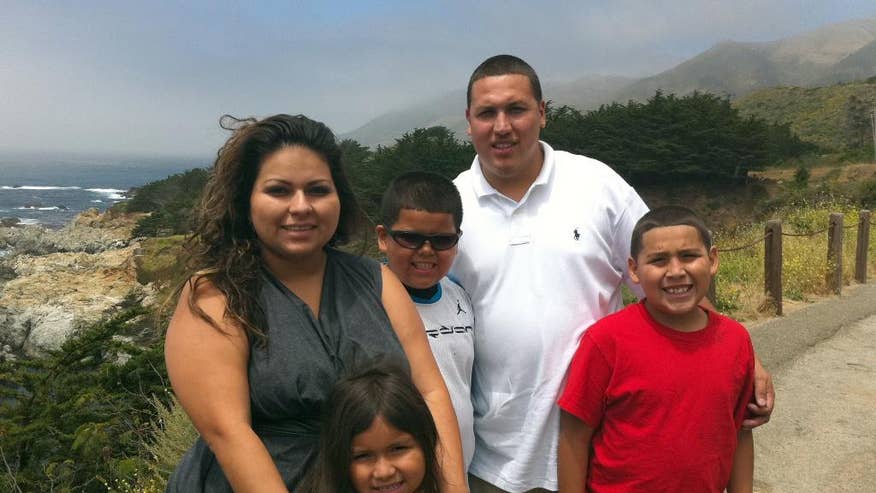8/18/2014
source
ANGLETON, Texas – David Barajas denies killing a drunk driver in a fit of rage after his two sons were fatally struck in 2012 on a rural road in Southeast Texas.
His defense attorney says Barajas is a good man, a grieving father and not a murderer. At the same time, his defense hasn't publicly suggested who else might be responsible for Jose Banda's shooting death.
Barajas' trial is set to begin Monday in a case with many complexities: No weapon was recovered, no witnesses identified him as the shooter and many in Barajas' community have strongly sympathized with him, with some saying they might have taken the law into their own hands if faced with a similar situation.
Legal experts acknowledge prosecutors could face a greater challenge than simply proving who committed the shooting, similar to another Texas case from 2012 in which a grand jury declined to indict a father who killed a man who molested his child.
"It's not the right way to do it, but jurors a lot of times make judgments based on moral responsibility, not legal responsibility," said Joel Androphy, a Houston defense attorney who isn't connected to the case.
The trial will focus on prosecutors' allegations that Barajas shot 20-year-old Banda in the head in December 2012 near Alvin, about 30 miles southeast of Houston. Minutes earlier, Banda's car struck Barajas' sons as they pushed the family's broken-down truck down a dark, narrow road just 50 yards from their home. Twelve-year-old David Jr. died at the scene; 11-year-old Caleb died at a hospital.
If convicted of murder, Barajas faces up to life in prison.
Many in the community have rallied around the 32-year-old father, including setting up a Facebook page called "Free David Barajas," which details fundraising events and where individuals have expressed their support.
But Banda's family says their loved one's fate should have been decided by the justice system and no one else.
"What (Barajas) did wasn't right," said Felicia Leija, 22, Banda's common-law wife. The couple has a 2-year-old daughter, Alisa, who was born a few months before the crash. "For other people to say they would have done the same thing ... you don't know what you would have done."
Barajas' attorney, Sam Cammack, says claims that his client took the law into his own hands are untrue, noting that Barajas didn't even own a gun. Brazoria County District Attorney Jeri Yenne declined to comment.
Neighbors said they heard gunshots minutes after the crash, and authorities allege Barajas went home, retrieved a gun and went back to the crash site, where he shot Banda in the head.
Toxicology tests later determined Banda had been driving while intoxicated. But Brazoria County sheriff's investigator Dominick Sanders said that in the moments after the crash, there had been no way to know it was alcohol related.
Witnesses have identified Barajas as the person who approached the vehicle before the shooting, Sanders said. And other witnesses said there was a man opening fire but none could identify Barajas as that person. Investigators never found the weapon, and gunshot residue tests done on Barajas came back negative.
A search of Barajas' home found ammunition consistent with the bullet that killed Banda, but Sanders said the missing weapon could still make "a big difference in the case."
So could the perceived moral circumstances, which legal experts agree may influence jurors. In June 2012, a grand jury in Shiner decided not to charge a father who fatally beat up a man who was found molesting his 5-year-old daughter behind a barn. In that case, the father called 911 afterward and urged paramedics to rush to the scene, shouting, "Come on! This guy is going to die on me!"
From a strictly legal perspective, experts say the Barajas case will be difficult to prosecute given the lack of hard evidence.
"The prosecutor is starting from behind the eight ball," Houston criminal defense attorney Grant Scheiner said.
Cammack would not speculate on who may have shot Banda.
"Mr. Banda lost his life out there at the scene that night, somehow," he said. "That is not a good thing. But to suggest Mr. Barajas has anything to do with it is a far stretch of the imagination."
source

No comments:
Post a Comment